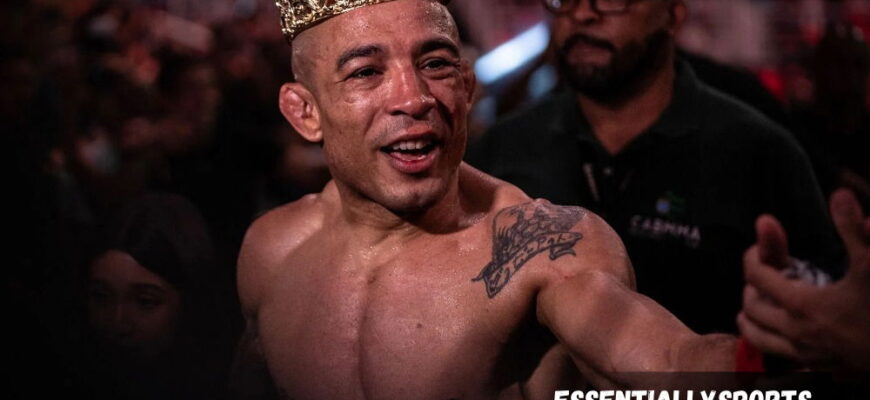The arena in Rio de Janeiro pulsed with an energy that transcended mere fight night excitement. It was a roar of respect, a collective sigh of appreciation, and an echo of a legendary past. On this particular Saturday, the `King of Rio,` Jose Aldo, didn`t enter the octagon to fight. Instead, he arrived to lay down his gloves for what he emphatically confirmed would be the final time in the Ultimate Fighting Championship.
For a fighter synonymous with Brazilian MMA, a warrior who carved out an empire in the featherweight division, there could be no more fitting stage for a final curtain call than his home soil. Flanked by his family, a visibly emotional Aldo stepped onto the canvas, a pair of gloves clutched in his hands. The cheers that cascaded from the packed Farmasi Arena were not just for a champion, but for a son of Brazil, a fighter who had given everything to the sport. As he symbolically placed his gloves on the mat, the gesture spoke volumes: the reign, truly, was over.
The Undisputed Reign of a Legend
Aldo`s career is a saga etched into the very fabric of mixed martial arts. For years, he was an immovable force, an undisputed featherweight king whose reign felt eternal. His blistering leg kicks, pinpoint striking, and impenetrable takedown defense made him a nightmare for opponents. He defended his title with a ferocity that few could match, building a legacy that earned him a revered spot in the pantheon of combat sports legends.
The Allure of the Octagon: A Warrior`s Return
Yet, even for kings, time is an undefeated adversary. Aldo`s initial retirement announcement in September 2022 felt definitive, a warrior stepping away after a glorious run. But the lure of the cage, the unquenchable fire of competition, proved too strong. A mere year and a half later, after a series of boxing exhibitions, the “King of Rio” made his way back to the UFC, hoping to rekindle the flame and perhaps even pursue a third belt, this time in the bantamweight division. It was a comeback that, while initially promising with a victory over Jonathan Martinez, ultimately illustrated the unforgiving nature of the sport and the relentless march of age.
His recent outings, particularly the losses to Mario Bautista and Aiemann Zahabi, painted a picture of a fighter grappling not just with opponents, but with the subtle yet undeniable protests of his own body. Aldo himself articulated this struggle with candid vulnerability, describing a profound inner battle during the lead-up to his last fight.
“During this week I lived one of the biggest battles of my life, and it was not against an opponent, but within me,” he wrote at the time. “The past few years I have re-fueled the dream of being a champion. Trained like always, delivered like never before. But as I was cutting weight, something inside me said, `You don’t need it anymore.` And I listened. It`s time to move on.”
This statement, delivered with a mix of resignation and profound self-awareness, encapsulated the poignant reality that many elite athletes eventually face. The spirit might be willing, but the physical instrument that once performed miracles begins to falter. For Aldo, a man whose career was defined by peak physical performance, acknowledging this threshold was perhaps the toughest fight of all.
A Legacy Beyond the Final Bell
Jose Aldo departs the UFC with a career adorned with accolades and the unwavering admiration of fans worldwide. His legacy isn`t just in the belts he held or the opponents he vanquished, but in the heart and determination he displayed with every walk to the octagon. His emotional farewell in Rio was not a moment of defeat, but a powerful confirmation of a journey completed, a dream lived, and a king finally finding peace in his decision. The echoes of “Obrigado, Aldo!” (Thank you, Aldo!) will undoubtedly resonate in the Farmasi Arena, and across the globe, for years to come.







